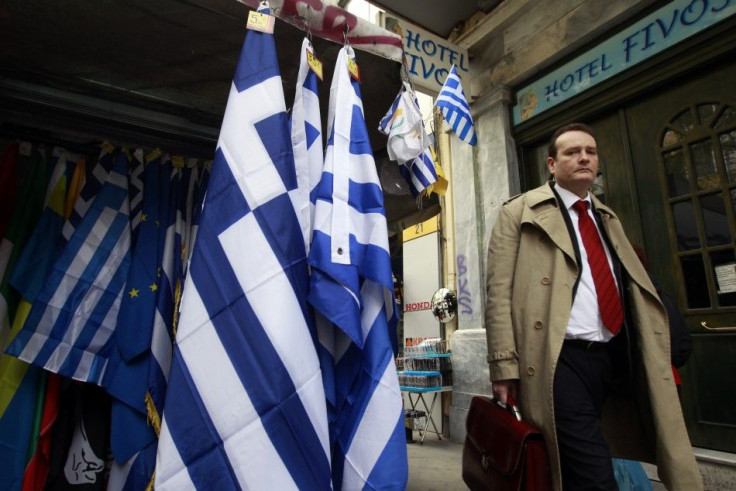Greece Debt Crisis: New Bailout Just Postpones the Inevitable
ANALYSIS

Euro zone finance ministers agreed to another huge bailout for debt-scarred Greece following late-night marathon negotiations in Brussels.
Under the new agreement, Greece will receive a loan of some $170-billion and have about $142-billion of its debts wiped out. However, in exchange for all this largesse, the Athens government must reduce its debt-to-GDP ratio from the current level of 160 percent to 120.5 percent by the year 2020. Also, the Greeks must permit a permanent monitoring mission from the European Union (EU), International Monetary Fund (IMF) and European Central Bank (ECB).
The loan comes just in time for Greece, which has to repay a maturing loan by March 20 to avoid bankruptcy.
Greek Prime Minister Lucas Papademos was elated by the deal.
It's no exaggeration to say that today is a historic day for the Greek economy,'' he said.
But will this new rescue really save Greece and prevent the euro collapse?
Gavin Hewitt, a BBC correspondent, thinks it may only serve as a temporary salve for a very ill patient.
“The country [Greece] that has been at the heart of the euro zone's debt crisis has, for the moment, been taken off the critical list,” he wrote.
“But it comes at a price. Permanent monitors from the EU, the IMF and the ECB will be placed on the ground in Athens to ensure there is no backsliding. It is a humiliating and unprecedented intrusion into Greece's sovereignty.”
Hewitt added: “To the question of whether growth will return to this battered [Greek] economy, there is a shaking of heads. Perhaps in a decade, I am told. The risk is that the new cuts will only deepen an existing recession .And the question remains: is Greece's future secure, or has this deal just bought time for the euro zone to build greater protection around its banks and around potentially vulnerable countries like Spain and Italy?”
Jennifer McKeown, senior European economist at Capitol Economics in London, warned that while the new bailout will likely prevent a disorderly default in Greece, it will also deepen the recession and economic malaise Athens is suffering.
“By reducing interest payments on Greece’s bail-out loans, in effect financed by the ECB agreeing to forego profits on its Greek bond holdings, the authorities believe that the Greek debt to GDP ratio can be reduced to 120.5 percent by 2020,” she wrote.
“This should be enough to ensure IMF involvement in the new bail-out, although the extent of this remains unclear. Private bondholders are also expected to take a further hit, accepting a 53.5 percent haircut instead of the previously agreed 50 percent, and lower interest payments.”
She added: “But with the recession thwarting debt reduction efforts and public outrage growing, we still see Greece leaving the euro-zone before the year is out.”
Indeed, anger among the Greek public is only likely to escalate.
An Athens taxi driver named Anastasis Chrisopoulo complained to Reuters: So what? Things will only get worse. We have reached a point where we're trying to figure out how to survive just the next day, let alone the next 10 days, the next month, the next year.
Similarly, Constantine Michalos, president of the Athens Chamber of Commerce and Industry, told BBC: The funds that are coming in are not staying in Greece, are not being invested in Greece, are not here to help the Greeks get out of this crisis, It's simply to repay the banks, so that they can retain their balance sheets on the profit side.
© Copyright IBTimes 2024. All rights reserved.











